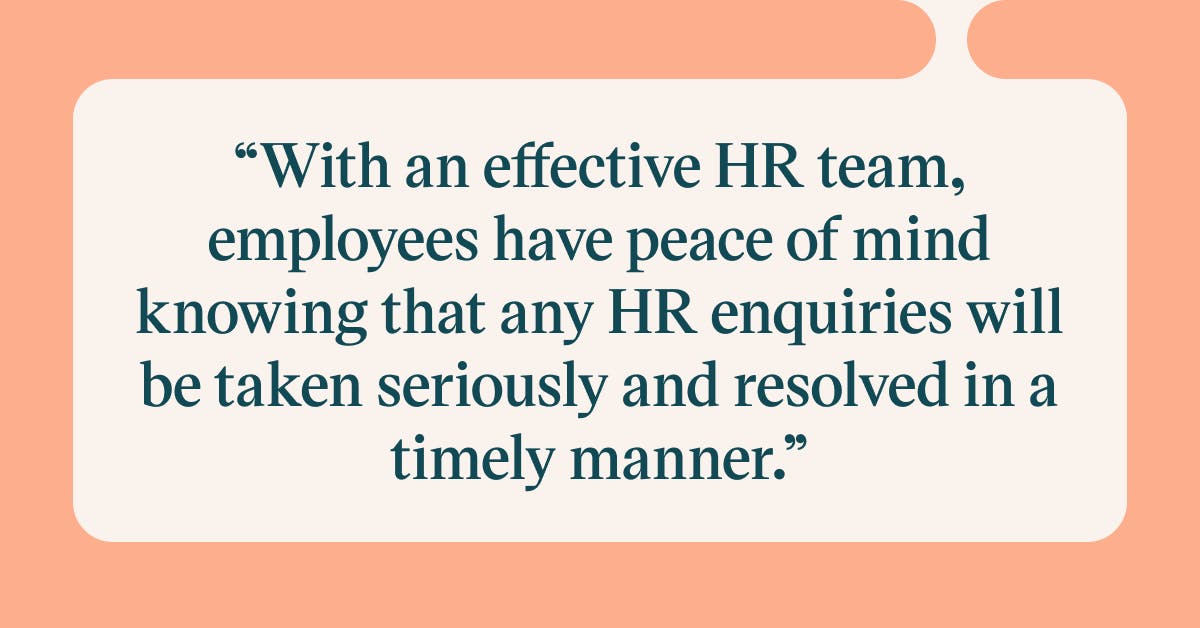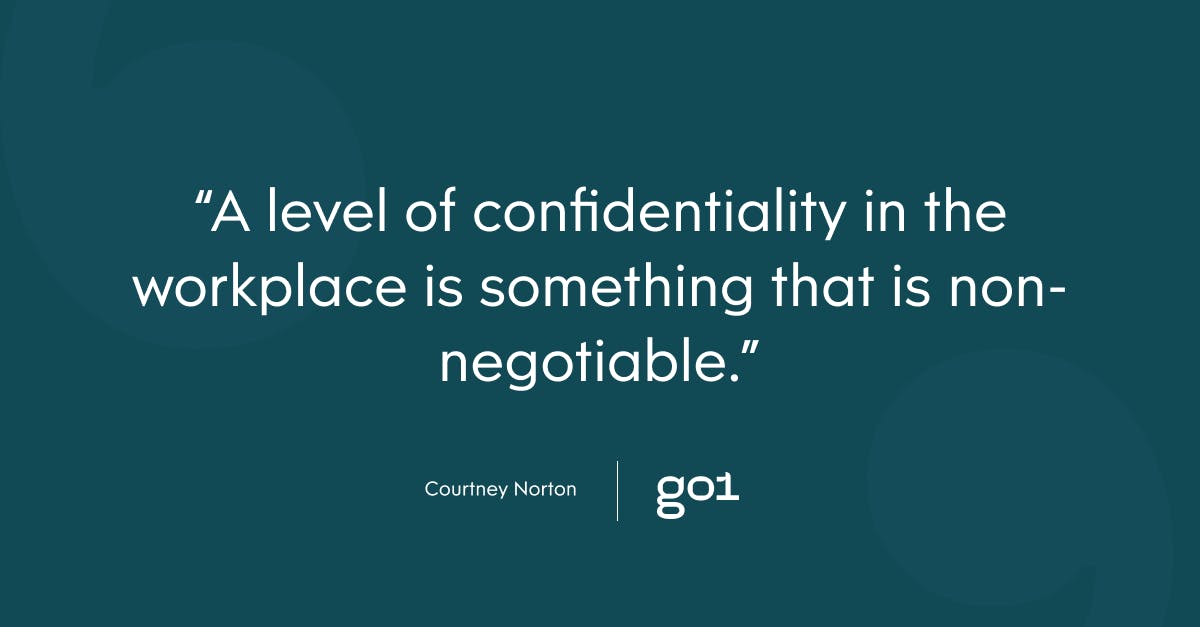
What skills are needed to work in HR?

No matter what industry you’re a part of, your workplace will undoubtedly have a human resources department. From answering enquiries regarding leave to resolving workplace conflict and plenty of other responsibilities, those who work in HR are often tasked with what many of us believe to be some of the more difficult aspects of a work environment.
With an effective HR team, employees have peace of mind knowing that any HR enquiries will be taken seriously and resolved in a timely manner. This can significantly reduce unnecessary stress for employees. At the same time, an HR department that is lacking in these areas can have serious consequences for the workplace overall like a reduction in the feeling of psychological safety as well as general distrust amongst employees.

So what sort of skills do HR departments need to have to ensure that they are implementing effective workplace policies while maintaining positive professional relationships with employees across all departments of a company? Below, we'll take a look at some of the most essential skills for an HR team as well as tips and tricks for how to action them in the workplace. At first glance, it can also be hard to tell which HR skills may need improvement within your team so we'll also take a moment to look at how to best identify any skills gaps with your HR team.
Time management
The HR department is unique within companies in that it is one of the very few teams that liaises with every single member of staff in one way or another. This means that they are often inundated with requests. If you’re a fan of the HR department at your workplace but not yet part of it yourself, you’ll likely wonder how they survive under their mountain of a workload. The answer? Excellent time management skills.
As a member of the HR team, some days can feel like you have an endless stream of requests, and it can sometimes feel so difficult to see how you’ll make it to the end that it becomes challenging to even begin. One way to combat this is by prioritising. At the beginning of each workday, create a list of tasks in order from most important to least important and tick them off as you go. Not only can this help you visualise and manage the tasks at hand, but it can also act as a physical representation of everything you’ve achieved for the day. Feel free to add tasks and rearrange priorities accordingly throughout the day. It doesn’t have to be a concrete list.
Another way to manage time more effectively in the workplace is to make clear deadlines for yourself and stick to them as much as possible. It is also important to communicate these deadlines to other people in the workplace where applicable. For instance, if someone sends you an email asking a question about some time off they’re planning. It’s a great idea to let them know a general turnaround time for a reply if you don’t have the capacity to answer their question right away. Saying something along the lines of, “great question! Happy to check on that for you. I’m pretty swamped with work at the moment but I can get back to you by close of business on Wednesday.” Even if that’s a longer wait than that person was expecting, they’ll likely be appreciative that you not only provided them with a specific timeline but took the time to be honest rather than making a promise you may not have been able to keep.
There are countless techniques that can be used to try and improve time management and not one technique will work for all HR teams. Don’t be afraid to try a few things out until you find what works for you!
Confidentiality
A level of confidentiality in the workplace is something that is non-negotiable. While there may be certain pieces of sensitive information that an HR department may be required to know about an employee, that does not mean that everyone in the workplace has a right to know that information.

One of the ways that HR team members can best ensure that they are doing their part to assist with workplace confidentiality is to have a clear understanding of any confidentiality policies the company themselves has as well as any legal policies. In Australia, this would be the Fair Work Act. It is also extremely valuable to make copies of these policies readily available to any employees for them to refer to at any time. Doing this not only helps with company employees being fully aware of any rights they have at work but also increases psychological safety at work as employees are more likely to feel that the workplace cares about their wellbeing.
Another critical element for effective confidentiality in the workplace is that once an HR employee commits to something remaining confidential, it is essential that it remains that way. Whether we like to admit it or not, many of us love a piece of gossip and the HR team member might only tell one other person. But that person might also tell one other person but before you know it, information that was supposed to remain confidential has now spread across the workplace.
When confidentiality at work is respected by the HR department, it has knock-on effects throughout the company. Employees can rest assured knowing that their private information as well as any workplace concerns that they have will remain that way.
Having an adaptable mindset
Arguably, the HR department of a workplace is one of the most likely to be unpredictable. You might be in the middle of what feels like a busy yet standard day at work and then a spanner is thrown into the works. Whether that spanner is an employee making a complaint about another or someone resigning unexpectedly, an effective HR team needs to be prepared to take it on.
One of the most simple ways to adjust your mindset to be more adaptable as someone working in HR is to accept that unpredictability is inevitable. In other words, unpredictability in HR is predictable. When you accept that unpredictability will be a natural part of working in HR, it’s less surprising when it does happen and is therefore easier to tackle.

If you’re looking for a more specific way to become adaptable and tackle unpredictability in HR, one way to do so is create a list of the most common unpredictable scenarios that can happen (perhaps there’s been an accident at work or a conflict has broken out) and then for each of them, write one or two solutions that you can try when it does happen. That way, you won’t have to panic in the moment. The answers will be right in front of you.
How to identify skill gaps in your team
Some skill gaps are easily identified, which means it can be a simple process to fill these gaps and upskill team members. However, some are not so obvious, and so require a business to conduct a skill gap analysis.
To undertake a skill gap analysis, you can follow these steps:
- Understand your business’s goals. When you understand your business’s objectives, you’re in a better position to identify what skills you need to get there.
- Understand what skills your current employees have. Do certain employees have similar skills to what’s missing or skills they can adapt? Upskilling current employees is much more cost-effective than recruiting.
- Recrue and analyze data. Once you’ve identified the skills your team lacks, you need to work out whether it would be cheaper to develop existing employees or hire new ones with the relevant skills. Development is often a more cost-effective solution and helps current employees feel valued, which in turn helps with retention.
- Close the gaps. If you’ve decided you need to hire, then the recruitment process can begin. If training and development are what you’re looking for, then online courses are an effective and affordable option which don’t require employees to take time away from their responsibilities.
To learn even more about how you can increase your skills in HR, why not check out Go1’s range of courses made specifically for those working in HR. While you’re there, be sure to subscribe to the Go1 newsletter to stay on top of all the latest L&D trends. Or, you can book a demo today to find out how Go1 can help with your team’s learning needs.



